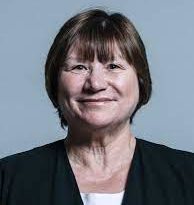James Sunderland – 2022 Speech on Support for Ukraine
The speech made by James Sunderland, the Conservative MP for Bracknell, in the House of Commons on 2 March 2022.
Over the past decade or so, we have seen increasing evidence of Russian ambition. In 2007, Russia planted a flag on the seabed at the north pole. In 2008, it invaded Georgia. In 2014, it invaded Crimea. In the same year, we saw Malaysia Airlines flight 17 shot down. In 2018, the events in Salisbury happened. Between 2009 and 2018, there was a 440% increase in cyber-attacks across the world, of which 75% were allegedly from Russia. We have had instability in the Balkans, interference in elections, destabilisation in Bosnia with active intentions to undermine the Dayton agreement—the list goes on.
This is known as sub-threshold activity, and we have got used to it. We have never really been quite sure, but it has been happening. However, there is nothing sub-threshold about the wilful and destructive invasion of a sovereign neighbour. What has happened over the last week is nothing other than abhorrent. For the Ukrainians, this is about hearts; it is about their homes and their lives. It is about survival; it is about repelling an invasion.
We have seen the indiscriminate use of weapons, including cluster bombs and thermobaric weapons—death and destruction. No one knows what Putin’s wider intent is. Perhaps it is to restore the Soviet Union; perhaps it is to expand his country; perhaps it is imperialism. We do not quite know, but the response to this incomprehensible action has been comprehensive and clear. Our reaction in the west is not just disbelief; it is beyond that—this is beyond belief.
The Prime Minister should be praised for his actions to lead the coalition of willing nations. The sanctions have been excellent, and I support 100% the support for refugees. More broadly, I am very comfortable with what NATO is doing, particularly on the supply of aid and equipment. Yes, we have left the European Union, but Members should be under no illusion: we are still supporting Europe. Our engagement with Europe is as strong as ever. I also commend the Opposition Front Benchers, who have been outstanding during the whole crisis. Parliament is at its best when we work together, and there has been an awful lot of sense spoken on both sides of the House over the last week.
Before I finish, I want to make some points to those on the Front Benches. I have three main observations. First, as politicians, we need to be careful and precise with our language. We must not inflame and we must not be careless, because people are watching—both our allies and those in Russia. This is about global leadership. We need, therefore, to be firm but not inflammatory with our language. By the same token, we need to work with the media, and the media must report this conflict accurately and fairly. Operational security is critical, and we must not get ourselves into a situation where carelessness in the media puts people’s lives at risk.
Alicia Kearns (Rutland and Melton) (Con)
My hon. Friend mentions the media. What is his view on whether Russia Today should be allowed to continue to stream in our country?
James Sunderland
My humble answer is that it should not. RT is currently spreading Russian propaganda, which nobody wants to see and nobody believes.
My second point is very important: we must make sure that we are not inadvertently sucked into direct conflict with Russia. The principles of article 5 are sacrosanct. NATO is a defensive alliance. NATO works. We must therefore adhere to our treaty obligations by not intervening directly, until the point that we must. We must resist that, so I say to Ministers: please be wary of come-ons and proxies; please be wary of any attempt by Putin to suck us into a conflict with him and his forces. To be worthy of its pre-eminence, NATO must fulfil the obligations placed upon it as the most successful military alliance ever.
My third point is very serious: whatever happens in Ukraine—our hearts go out to everyone involved in this ghastly conflict—we need to be ready. If Russia attacks or invades a NATO country, in line with our article 5 obligations, we must be ready for what comes next; we will be at war. As much as nobody wants an escalating conflict, Putin must be clear that if he crosses that line, we will have a big problem. NATO is a defensive alliance, but it is also poised and ready to do what it must.
This is about planning and positioning. It is about ISTAR—intelligence, surveillance, target acquisition and reconnaissance. It is about our understanding what the Russians are doing. And in the unthinkable event that we do go to war, we cannot afford to watch evil unfold.


